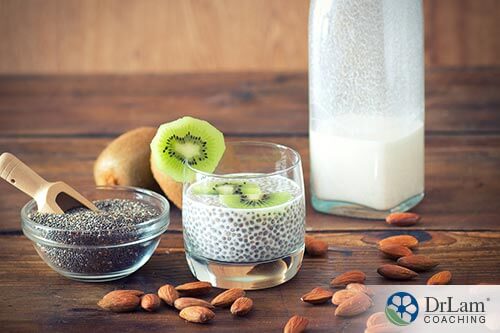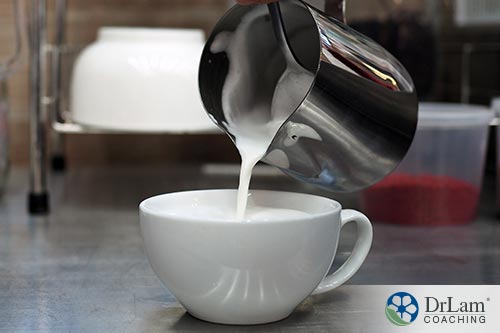 Have you ever wondered why there are times when you get some serious food cravings at night? Your levels of a hormone known as ghrelin are probably the reason why. The problem with this is that when you get hungry during late hours of the evening, you have a tendency to overeat. When this happens, it’s not just your waistline that gets affected. Unfortunately, your overall health can become compromised too. There are steps you can take to keep it under control, but first, you have to know what it is, and why you need it.
Have you ever wondered why there are times when you get some serious food cravings at night? Your levels of a hormone known as ghrelin are probably the reason why. The problem with this is that when you get hungry during late hours of the evening, you have a tendency to overeat. When this happens, it’s not just your waistline that gets affected. Unfortunately, your overall health can become compromised too. There are steps you can take to keep it under control, but first, you have to know what it is, and why you need it.
Ghrelin is a gut hormone that has stimulatory effects on several functions in the body. Mainly produced and released by the stomach, this hormone is better known as “the hunger hormone” due to how it stimulates food-intake while also promoting the storage of fat.
However, it also does a lot more in the body than just regulate appetite:
Primarily, the level of ghrelin in your body is regulated by your food intake. That is why your levels of this hormone tend to go up just before you have a meal and fall right after you eat. Levels are also increased when you are fasting since you tend to experience more hunger.
Once you eat, the concentration of this hormone tends to decrease in your body. That’s because various nutrients tend to slow down its release. However, proteins and carbohydrates are able to restrict the production and subsequent release of this hormone much better than fats.
Typically, the normal circulating level of this hunger hormone in the body is determined by the balance among its degradation rate, clearance rate, and secretion rate. When this hormone is below or above normal levels, it can be quite harmful to health. It can trigger serious stress and even cause adrenal fatigue as a result.
Since ghrelin is known as a hunger hormone, you may think it would be better if your body had lower levels of it. However, the truth is, that may not be such a good idea. In fact, one study found that while low levels helped reduce appetite, it also triggered significant stress in the body. This is because an absence of this hormone has been shown to produce anxiety, and therefore contributes to serious stress. In contrast, having this hormone present has been shown to prevent excessive anxiety when a person is in a state of chronic stress.
Hence, when this hunger hormone is at significantly low levels, it can contribute to further stress in the body. This, in turn, can lead to the disruption of your NeuroEndoMetabolic (NEM) Stress Response system as it forces the body to produce more of stress hormone cortisol. Because of this imbalance, adrenal fatigue may be triggered.
The worst part is that, because your hunger hormone levels are low, you do not have an appetite to eat. Hence, it may prove to be quite a challenge to keep your body nourished while facing constant stress. This only makes your body weaker and worsens adrenal fatigue.
 On the other hand, the problem with high levels of this hormone is that it tends to make you hungry to the point that you overeat, especially during later hours of the night. One study recently conducted by the Johns Hopkins School of Medicine revealed that the participants’ level of the hunger hormone tend to increase at night while those of the fullness hormone tend to go down.
On the other hand, the problem with high levels of this hormone is that it tends to make you hungry to the point that you overeat, especially during later hours of the night. One study recently conducted by the Johns Hopkins School of Medicine revealed that the participants’ level of the hunger hormone tend to increase at night while those of the fullness hormone tend to go down.
Even worse, researchers also found that your hunger hormone levels can rise when you are under stress. A study conducted by the UT Southwestern Medical Center confirmed that chronic stress tends to bring hunger hormone levels up in the body. As this happens, a person’s food intake also tends to increase significantly, and so does their weight.
This poses quite a significant problem since stress can cause you to binge eat and end up getting more calories than your body can burn. If the stress should continue, there is a significant chance that you will end up overeating more frequently. As this happens, you will begin putting on weight. Obesity comes with its own health problems and can worsen adrenal fatigue.
There is absolutely no denying that being under severe stress can cause a person’s appetite to increase. One study published in 2001 linked high cortisol levels with increased caloric consumption. Another found that stress tends to cause a significant increase in appetite. Moreover, when under stress, a person’s preference for food also tends to change.
Instead of preferring healthy foods such as whole grains, leans meats, and low-fat foods, a person under stress instead tends to choose dishes such as fast food, burgers, tacos, and pizza. Moreover, there is also a common craving for sweet foods or dessert foods. These include sweetbreads, canned fruit, fresh fruit, chocolate, candy bars, muffins, and ice cream.
While indulging in these foods from time to time is fine, eating them frequently due to stress can lead to poor overall health. In fact, when you are already experiencing adrenal fatigue, the last thing you should be eating are foods that are high in sugar. This is because these foods tend to force the body to produce even more cortisol just to process the sugar. This ends up worsening adrenal fatigue and the associated symptoms.
At the same time, because cortisol tends to encourage fat storage in the body, belly fat also increases. Losing this fat can be quite challenging, especially if you can’t stop eating bad foods due to stress.
The best way to avoid complications or prevent them from worsening is by learning to better control your appetite, especially late at night when your hunger hormone levels are spiking. There are certain ways that you can do this:
Eating at planned intervals throughout your day can help keep your blood sugar more stable. It makes you less likely to overeat at night or crave foods that are unhealthy for you.
A “mood and food diary” details what you ate and how you were feeling while you were eating. This helps you gain a better understanding of your personal relationship with food and what type of feelings you associate with certain foods. This can help highlight when cravings might be due to stress, and help you find more productive ways to deal with your feelings.
Since stress has been linked to overeating, it may help to try some de-stressing techniques to help control your cravings. These include meditation, yoga, breathing exercises, gentle exercise, stretching, massages, and even hot baths.
 When it is time to snack, it also helps to have some healthy snacks options on hand. Eating these should help stop you from looking for something sugary and unhealthy in the middle of the night.
When it is time to snack, it also helps to have some healthy snacks options on hand. Eating these should help stop you from looking for something sugary and unhealthy in the middle of the night.
However, make sure you discuss new foods with your physician, especially if you have adrenal fatigue. Many have some intolerance or sensitivity to certain foods, which can cause uncomfortable side effects. If you suspect you have a sensitivity, it is best to have a food allergy test done to be safe.
That said, here are some healthy evening snack options:
Almonds and other types of nuts have been known to help give you a good night’s sleep. In fact, a study published in 2016 found that almonds possess sedative properties that may help people with insomnia. In addition, another study conducted by the Shiraz University of Medical Sciences in found that including almonds in one’s daily diet can aid in weight loss.
If you want to sleep longer, it may help to have a kiwi fruit an hour before going to bed. According to a study conducted by Taipei Medical University, doing so can significantly improve both sleep efficiency and total sleep time.
Tart cherries are said to be effective in improving one’s quality of sleep because they are rich in melatonin. Moreover, a study conducted by the Louisiana State University also found that drinking tart cherry juice twice a day successfully increased sleep time by almost 90 minutes among adults with insomnia. Cherries are also known for their anti-stress properties. Another study found that tart cherry juice can reduce oxidative stress in adults.
 A glass of warm milk before going to bed can also help you sleep. This is because milk contains tryptophan and according to a study conducted by the Nestlé Research Centre, tryptophan has been shown to improve sleep among adults with sleeping problems. Moreover, it has also been shown to improve one’s mood. However, milk can also be inflammatory, so goat’s milk may be a better choice if you have adrenal fatigue.
A glass of warm milk before going to bed can also help you sleep. This is because milk contains tryptophan and according to a study conducted by the Nestlé Research Centre, tryptophan has been shown to improve sleep among adults with sleeping problems. Moreover, it has also been shown to improve one’s mood. However, milk can also be inflammatory, so goat’s milk may be a better choice if you have adrenal fatigue.
If your ghrelin levels are too low or too high, anxiety, stress, and weight gain can result, especially if this occurs in the evening. By taking steps to manage your appetite at night, you can prevent your hunger hormone getting too high during your sleeping hours. In doing so, you are better able to keep to a healthy diet that supports adrenal health and recovery from adrenal fatigue. What’s more, you’re also able to maintain a healthy weight.
Ghrelin is a hormone that stimulates both food intake and fat storage in the body. When the body is experiencing stress, research has shown that ghrelin levels in the body increase significantly. This may explain why people tend to eat more when stressed out.
